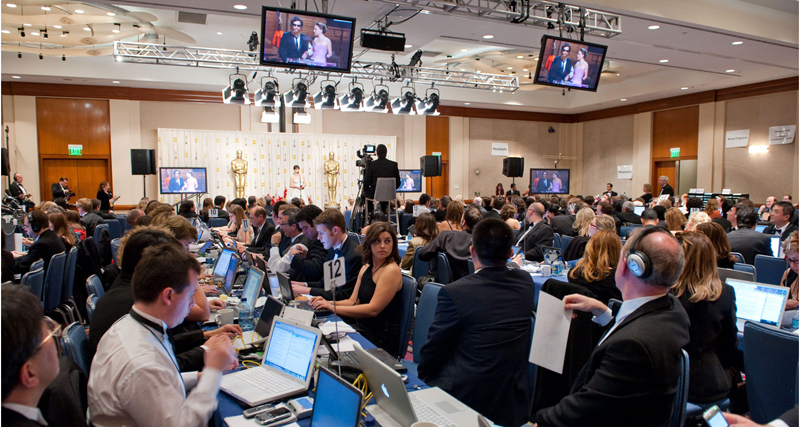
The covid pandemic is upsetting the awards-season calendar, as televised awards shows postpone, cancel or become bland virtual events — creating ripple effects.
A fallout is that awards-marketing spending looks to be subdued by the uncertainty, and prestige films are deprived of routine publicity bursts in the lead-up to the Oscars. Amid the chaos, the door is also open for unheralded films to become surprise winners for big and small awards.
“After being felled by the still-raging Omicron variant, the Critics Choice Awards have announced its new date, Sunday, March 13 — which also happens to be the same date as the BAFTA Film Awards in London,” points out Pete Hammond in Deadline.com. “The CCAs will air live on the CW Network and TBS from 7-10 p.m. ET in a broadcast honoring both film and television. … It also will air in many countries throughout Latin America, Europe, and Asia.”
So, a mid-tier Hollywood awards telecast collides with the United Kingdom’s most prestigious awards — though it’s still possible for one to move. But everyone is hemmed in as, for example, the Directors Guild Awards are the night before. The awards’ calendar is both compressed and thinned. For example, the Palm Spring Film Festival — a fixture on the awards circuit with its traditional mid-January date — is cancelled.
With events shuffled or canceled, the usually sequential and spaced rollout for awards and events is disrupted, which deprives prestige films of publicity bursts to lift their boxoffice. The Hollywood publicity machine is interrupted for upmarket films that had been banking on awards glow.

“’For your consideration’ billboards are still a familiar sight around Los Angeles, but in-person meet-and-greets are largely on hold,” says a New York Times article by Nicole Sperling.
The Academy Awards’ Governors Awards —which hands out honorary Oscars in a non-televised ceremony — is postponed, but the main Academic Awards remains set for March 27. The Sperling story asks, “Will there be a host? How about a crowd? Perhaps most important, will anyone watch?”
The Hollywood Reporter is publishing a rolling series of stories simply chronicling the carnage of award shows and events postponing, shifting to virtual from live or canceling completely.
Another distortion is the deep-pocket streamers such as Netflix are the big spenders in awards season, given the economics of their subscription business. “After winning the Best Documentary Oscar for ‘Icarus’ in 2018, Netflix has aggressively sought further nonfiction accolades, most notably two years ago when four of its films made the shortlist, two were nominated, and one of its acquisitions, ‘American Factory,’ won,” wrote Anthony Kaufman in the journal of the International Documentary Association.
“For now, filmmakers looking to be taken seriously must come up with a minimum of $100,000 and carve out a few months of their lives to mount a campaign,” Kaufman continues. “Compared to the million-dollar-per-film marketing budgets of the streaming studios, low-seven-figure sums are a drop in the bucket, but at least it will get filmmakers in the door, with a publicist, a few emails to AMPAS members, and a promotional screening or two.”
What’s a normal awards-season blitz? “Campaigns include private screenings for academy members; events, such as cocktail receptions with filmmakers and cast; direct mail (via both e-mail and postal service); ad campaigns in trade newspapers; and DVDs or online access of movies,” says the third edition of book “Marketing to Moviegoers.”
“Hollywood trade newspapers and other organizations mount panel discussions where creative figures who are candidates for awards can speak to audiences with awards voters,” the academic/business book continues. “The ecosystem around awards marketing includes GoldDerby.com, the Los Angeles Times newspaper’s ‘The Envelope,’ the New York Times newspaper’s ‘Carpetbagger,’ and others who generate editorial coverage suggesting who deserves awards recognition, who is in contention, and who is out of contention.”
Related content:
Leave a Reply